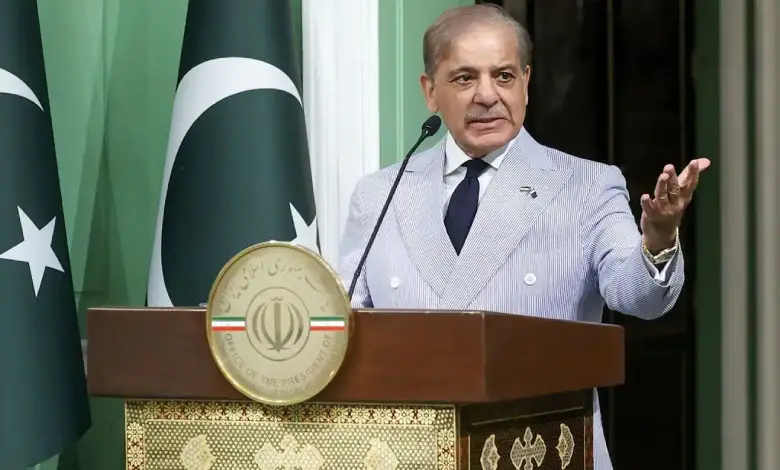
Tehran: During his official visit to Tehran, Pakistani Prime Minister Shehbaz Sharif expressed his nation’s readiness to engage in dialogue with India to address persistent bilateral disputes, encompassing the Kashmir conflict, water distribution agreements, and commercial relations.
Speaking at a joint media briefing alongside Iranian President Masoud Pezeshkian, Prime Minister Sharif stated his country’s openness to negotiations concerning water-related matters with its neighboring nation, according to Pakistani news outlet Dawn. The Pakistani leader emphasized his administration’s commitment to advancing trade cooperation and collaborative counter-terrorism efforts through diplomatic channels.
“We sought peace in the past, continue to desire peace presently, and will pursue regional stability through diplomatic negotiations and round-table discussions to address our pending disputes,” Sharif declared during the press conference.
The Prime Minister conditioned his peace overture by stating that Pakistan would demonstrate genuine commitment to peaceful resolution if India reciprocates his diplomatic initiative with sincerity.
Sharif’s Tehran visit followed his diplomatic mission to Turkey and precedes scheduled official visits to Tajikistan and Azerbaijan.
Iranian state broadcaster IRNA reported that President Pezeshkian endorsed the establishment of a lasting ceasefire between the South Asian neighbors, advocating for regional diplomatic engagement to settle conflicts and foster stability.
The Indus Water Treaty remains suspended following the tragic Pahalgam terrorist incident that claimed 26 civilian lives. In response to this attack, the Indian government implemented multiple retaliatory measures against Pakistan, including the suspension of the water-sharing agreement.
India’s External Affairs Minister S Jaishankar previously confirmed that the 1960 Indus Water Treaty, which regulates water resource distribution from the Indus River system between both nations, remains suspended due to Pakistan’s alleged involvement in cross-border terrorist activities.
Ministry of External Affairs Spokesperson Randhir Jaiswal highlighted that environmental changes and population dynamics have altered ground conditions since the treaty’s inception.
“Following the Cabinet Committee on Security’s April 23rd decision, India maintains the treaty’s suspension until Pakistan demonstrates credible and permanent cessation of cross-border terrorism support. Additionally, environmental shifts, demographic changes, and technological advancements have transformed existing ground realities,” Jaiswal explained.
India has maintained a comprehensive prohibition on direct and indirect imports and transit of Pakistani goods, effectively suspending bilateral trade operations, as outlined in a Commerce and Industry Ministry directive.
(With ANI Inputs)




